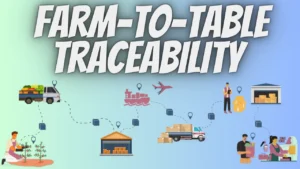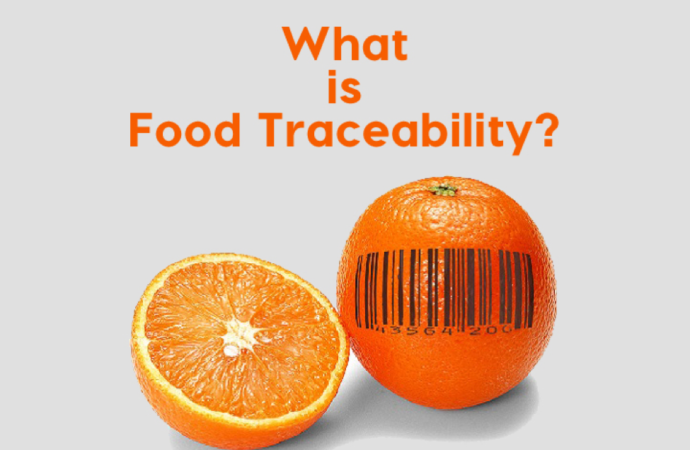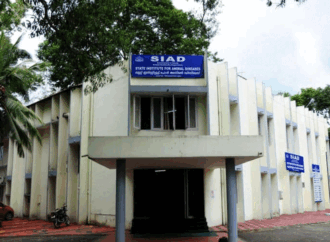Food traceability refers to the process of tracking and documenting the movement of food products from their origin to consumption. This system allows businesses, authorities, and consumers to trace the entire journey of food items through every stage of the supply chain, including production, processing, packaging, and distribution. In an increasingly globalized food system, traceability is crucial in ensuring food safety, quality, and compliance with regulatory standards. By providing transparency, traceability not only helps identify the source of contamination during foodborne illness outbreaks but also fosters consumer trust and supports sustainable practices in food production and consumption. Read on to discover why food traceability is essential and how it plays a key role in ensuring food safety, quality, and consumer trust.
Why Food Traceability is Important

Food traceability is essential for several reasons, particularly in India, where food safety challenges persist. It helps ensure food safety by allowing authorities to quickly identify the source of contamination. During an outbreak, traceability enables the rapid tracking of affected products, minimizing exposure and facilitating effective recalls. Without traceability, contaminated food could continue circulating, posing risks to public health.
Traceability also supports quality control by ensuring that food is produced, processed, and transported under safe conditions. It helps prevent the distribution of substandard products. In a country with diverse agricultural practices, traceability ensures compliance with safety standards set by the Food Safety and Standards Authority of India (FSSAI), building trust in the food supply system.
Furthermore, traceability fosters consumer confidence by offering transparency. As consumers grow more concerned about the origins and quality of their food, traceability allows businesses to provide clear information about food sources, production methods, and certifications. This transparency combats food fraud, including mislabelling and adulteration, common issues in India’s food market.
Benefits of Food Traceability
Food traceability offers several benefits that improve food safety, quality, and sustainability in India’s food system.
Enhanced Food Safety
- Quick Identification: Traceability systems enable the rapid identification of contaminated products, ensuring quicker recalls and minimizing public health risks.
- Efficient Recalls: When foodborne illnesses occur, traceability ensures swift removal of affected products from the market.
- Example: During the 2018 E. coli outbreak in the U.S., traceability quickly pinpointed the source, limiting contamination spread.
Quality Control and Compliance
- Monitoring Conditions: Traceability ensures food is stored and transported under appropriate conditions, reducing spoilage and waste.
- Regulatory Adherence: Traceability systems help businesses comply with Food Safety and Standards Authority of India (FSSAI) regulations, maintaining food safety standards.
- Example: Traceability helps ensure proper handling of dairy and meat products, which are vulnerable to spoilage.
Building Consumer Trust
- Transparency: Traceability allows businesses to provide verifiable details about their food products, building consumer confidence.
- Addressing Food Fraud: It minimizes food adulteration by ensuring that consumers receive authentic products.
- Example: Consumers can verify organic food products through traceability information, ensuring authenticity.
Reducing Food Waste
- Optimized Distribution: Traceability helps ensure food reaches consumers within its shelf life, minimizing waste.
- Efficient Supply Chain: By identifying weak points, traceability improves food handling and reduces losses.
- Example: Traceability reduces food wastage for perishable items like fruits and vegetables during storage and transportation.
Supporting Sustainability
- Sustainable Sourcing: Traceability enables consumers to choose sustainably sourced food, promoting eco-friendly farming practices.
- Reduced Carbon Footprint: By optimizing logistics, traceability reduces transportation and storage costs, lowering the carbon footprint.
- Example: Traceability supports sustainable practices in India’s growing organic food market, which focuses on environmental responsibility.
Faster Responses During Recalls
- Quick Response: Traceability helps locate and remove affected products quickly during a recall, minimizing consumer exposure.
- Regulatory Efficiency: India’s developing food recall system benefits from traceability, ensuring the swift removal of unsafe products from circulation.
- Example: During recalls, traceability ensures that only the affected products are withdrawn, preventing unnecessary disruptions.
The Role of Technology in Food Traceability
Technological integration is vital in enhancing food traceability. Tools like barcodes, RFID tags, and blockchain technology enable efficient tracking of food items throughout the supply chain. In India, these technologies are improving transparency and efficiency in the food system. Blockchain, for example, ensures data integrity and transparency, providing an additional layer of security.
Moreover, mobile applications and IoT devices allow consumers to access traceability information at the point of sale, enabling them to make informed decisions about food safety, origin, and sustainability.
Conclusion
Food traceability is a powerful tool for ensuring food safety, quality, and sustainability in India. By tracking food from farm to table, traceability helps prevent foodborne illnesses, builds consumer trust, reduces waste, and supports sustainable practices. As India becomes a more prominent player in global food production and consumption, effective traceability systems will be essential to meet the growing demand for safe, high-quality food products. Food traceability is not just a regulatory requirement—it is a strategic advantage for businesses in an increasingly transparent and health-conscious market.
 Food Manifest
Food Manifest 


















